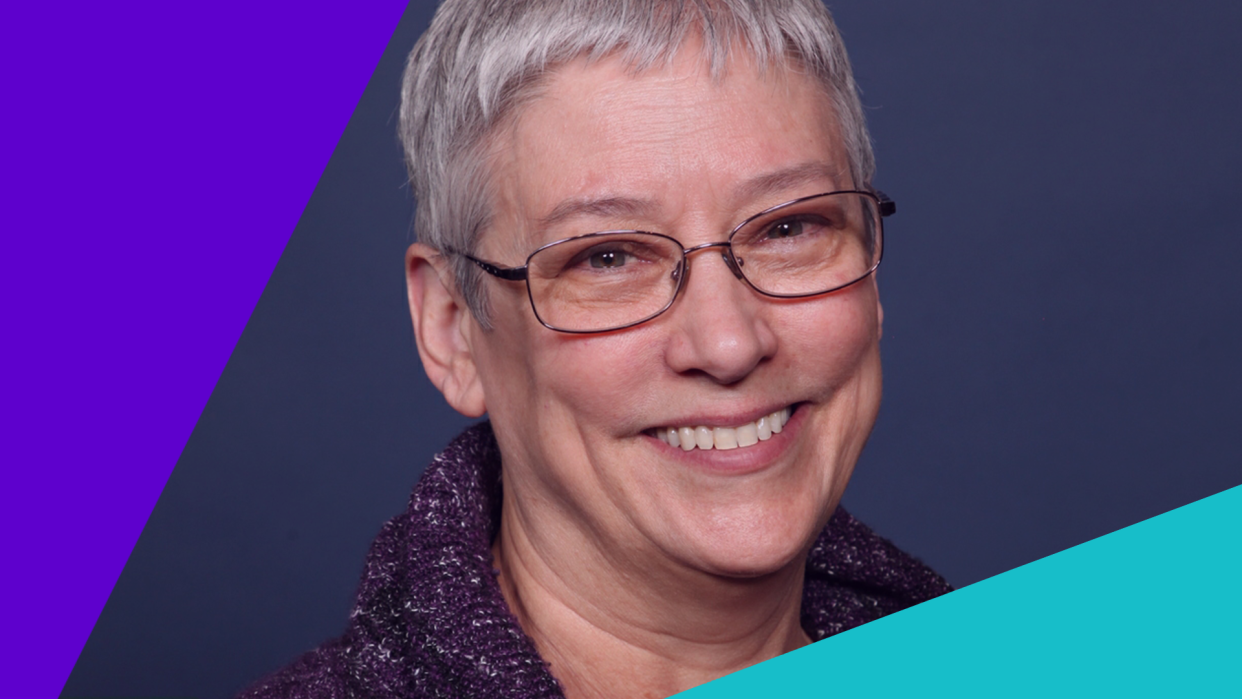‘I was stunned’: A 'suspicious' diagnosis this woman didn't see coming

In early 2011, Janet Freeman-Daily was feeling healthy—except for a cough she couldn’t shake. “It was kind of a little thing,” she tells Yahoo Life. “But it was getting more noticeable.”
Freeman-Daily and her family had a trip planned and she didn’t want her cough to get worse on vacation. So, she visited her doctor and was prescribed antibiotics. “They did nothing,” she says of the meds.
After the trip, everyone in her family developed an upper respiratory tract infection, but Freeman-Daily’s was severe. “I started coughing up green gunk and blood,” she says. “I thought, ‘Well, that isn’t normal.’”
So, she went back to her doctor, who suspected pneumonia. She was given a second round of antibiotics—they also did nothing. Freeman-Daily was sent for a chest X-ray and, “before I left the hospital, they asked me to come back and do a CT scan,” she says.
Afterward, she was told that there was something “suspicious” in her lung, and that she needed a biopsy. “I had a very anxious weekend waiting for the results,” she says. Just five days after getting an X-ray for what she was originally told was pneumonia, Freeman-Daily had a new diagnosis: She had stage 3 non-small cell lung cancer.
I was stunned. I had no known risk factors. I knew nothing about lung cancer. I didn’t know anybody with lung cancer. I didn’t know what to think. Janet Freeman-Daily, lung cancer survivor
“I was stunned,” she says. “I had no known risk factors. I knew nothing about lung cancer. I didn’t know anybody with lung cancer. I didn’t know what to think.”
Freeman-Daily said she was by herself when she got the news—her husband was working. “I sat down, had a big glass of wine and watched a bad movie,” she recalls.
A rocky path toward treatment
Over the next two weeks, Freeman-Daily and her medical team learned more about her cancer and kept altering her treatment plan. “It went from, ‘it’s just in one lung, we can take the tumor out” to ‘okay, it’s spread in the whole lung, we’re going to take the lung out,’ to ‘it’s between two lungs, we can’t take that out,’” she says. Her cancer was still considered curable but surgery wasn’t an option because of the location of her tumor. At the same time, she says, “I had pneumonia so severe that I was hospitalized for days.”
Freeman-Daily was put on IV antibiotics for her pneumonia, which had to be treated before she could start cancer treatment.
Finally, she began chemotherapy and radiation therapy at the same time. “I was on a liquid diet, taking pain medication, and feeling like crap,” she says. “It tanked my white and red blood cell counts, but they thought I would be cured by the end, so I was willing to put up with it.”
Moving forward
Nine years later, Freeman-Daily says she had no evidence of disease. “I take a pill twice a day to keep it that way,” she says. “I’m very lucky.”
Freeman-Daily has some scarring in her lungs from her radiation treatment and she’s prone to getting pneumonia. “Upper respiratory stuff goes to my chest really quickly,” she says. “I also have to be incredibly careful with COVID-19 but, overall, I’m living a fairly normal life.”
Now, advocacy work is important to her. Freeman-Daily co-founded The ROS1ders, a nonprofit group for patients and caregivers dealing with rare ROS1+ cancers, most of which are lung cancer patients, and advocates for cancer research.
Freeman-Daily still doesn’t know how she developed lung cancer. “There are several risk factors associated with lung cancer, but no way to determine what caused a specific case of lung cancer,” she says. “I grew up in an area that had high levels of airborne arsenic belching from a nearby copper smelter—inhaled arsenic can cause lung cancer. Did it cause my lung cancer? No way to know.”
Freeman-Daily urges people to see a doctor if they have a chronic cough, and to keep pushing for answers if it doesn’t clear up with medication. “If you are a younger person, they might say it’s just allergies,” she says. “But at least push for a chest X-ray. It could save your life.”
Read More:
‘A shocking diagnosis': How this harmless symptom turned out to be cancer
She was told she had 12 months to live: one woman's moving battle with cancer
'I wouldn’t wish that on anyone': How this woman lost 33 family members to cancer
'I could barely make it to the bathroom without crawling': Living with lung cancer and COVID-19
